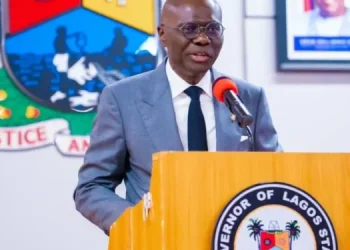Abuja — The National Economic Council (NEC) has warned that large-scale illegal mining—particularly of gold and other high-value minerals—is draining public finances, and has expanded its anti-theft mandate beyond crude oil to the solid-minerals sector.
Briefing State House correspondents after Thursday’s NEC meeting chaired by Vice President Kashim Shettima, committee chair and Imo State governor Hope Uzodimma said the Council extended the scope of the Committee on Crude Oil Theft and Pipeline Vandalisation to cover illicit mining and related value-chain abuses.
“Our solid minerals are being mined and stolen without contributing to national revenue,” Uzodimma said. “NEC has now directed our committee to work with relevant agencies to ensure these resources are properly accounted for.”
He said the enlarged, inter-ministerial team will coordinate with regulators and security agencies to tighten monitoring and licensing, plug revenue-collection gaps, and recommend enforcement measures across both oil and solid-minerals value chains.
Providing an update on oil production, Uzodimma noted that daily output has risen from pre-2023 levels of roughly 700,000–800,000 barrels per day to “over 1.7 million bpd,” attributing the rebound to joint operations by the Nigerian National Petroleum Company Limited (NNPCL), the Navy, other security agencies, and community stakeholders. The same collaborative model, he said, would be deployed against illegal mining.
“We must strengthen surveillance across export corridors—offshore and in the creeks—to deter illegal entries and protect production infrastructure,” he added.
Pressed for a timeline and detailed terms of reference for the expanded assignment, Uzodimma said the committee would firm up its operational framework “in due course,” emphasizing that NEC’s priority is to halt the ongoing pillage and restore accountability across extractive industries.
The Council’s decision reflects mounting concern that unregulated mining—often carried out by informal networks and organized syndicates—has become a major source of revenue loss and security risk, mirroring long-standing challenges in the oil sector. By folding solid-minerals oversight into the existing anti-theft apparatus, NEC aims to create a single, coordinated front to secure national assets, boost receipts, and improve transparency.
“Illegal extraction—whether oil or gold—undermines our economy,” Uzodimma said. “This expansion signals NEC’s determination to stop it and ensure Nigeria earns what it is due.”





















